Essential Maintenance Tasks for Commercial HVAC Systems
Maintaining commercial HVAC systems is essential for ensuring a comfortable environment in your building while also optimizing energy efficiency and reducing costs. Regular maintenance helps avoid costly repairs and extend the lifespan of the equipment. Here are the essential maintenance tasks you should consider.
Regular Inspection of Components
It’s important to schedule regular inspections of your HVAC system’s key components. These include:
- Air Filters: Change filters every 1-3 months to ensure clean airflow and maximum efficiency.
- Coils: Inspect and clean condenser and evaporator coils to maintain heat exchange efficiency.
- Drain Lines: Clear any blockages from the condensate drain lines to prevent water damage.
- Belts and Bearings: Check and adjust belts and bearings to reduce wear and ensure they run smoothly.
Regular Cleaning
Cleaning is a critical part of HVAC maintenance. Dust and debris can accumulate in various components, affecting performance. Here’s what needs regular cleaning:
- Fans: Dust and dirt build-up can lead to inefficiency. Clean fans regularly to maintain airflow.
- Ductwork: Have duct cleaning performed every few years to prevent allergens and dust from circulating.
- Filters: Replace filters and clean pre-filters regularly to enhance air quality.
Calibration and Testing
Calibrating the HVAC controls ensures optimal performance. Conduct the following tests on a regular basis:
- Thermostat Calibration: Ensure that thermostats reflect accurate temperatures to control heating and cooling efficiently.
- System Performance Testing: Test the airflow and temperature differential of each part of the system.
Seasonal Preparation
Prepare your HVAC system for seasonal changes to avoid breakdowns during peak demands:
- Pre-Winter Prep: Inspect heating components and ensure that your furnace is running efficiently.
- Pre-Summer Prep: Check that air conditioning units are functioning properly and ready for the heat.
Utilizing Professional Services
Hiring a licensed HVAC professional for annual maintenance reduces risks and ensures that the system is safe and efficient. Professionals can handle tasks such as:
- In-depth Inspections: Comprehensive check-ups to spot issues not visible during routine checks.
- Advanced Cleaning: Professional cleaning of coils, drain pans, and ductwork that require specialized equipment.
By implementing these essential maintenance tasks, you ensure that your commercial HVAC system runs smoothly, efficiently, and has a longer lifespan. Regular monitoring not only guarantees consistent comfort for your building’s occupants but also leads to energy savings. Organizations like the Air Conditioning Contractors of America (ACCA) offer valuable resources and further industry insights on HVAC maintenance standards.
In addition, many preventative maintenance plans are structured to include regular visits, inspections, and testing. This could include a detailed report on the status of your system and recommendations for repairs or replacements, providing peace of mind for facility managers. For more detailed assistance, you might consider partnering with specialists from ASHRAE to optimize performance and efficiency.
Remember, a well-maintained HVAC system is not just about comfort, it’s also about cost savings in the long run. By regularly monitoring and caring for your commercial HVAC system, you can avoid unexpected expenses and ensure a productive environment.
The Importance of Regular HVAC Inspections
Regular inspection of HVAC systems is a fundamental practice that ensures optimal performance, energy efficiency, and longevity of your units. For commercial facilities, the importance of routine inspections cannot be overstated. They help identify potential issues early, thus preventing costly repairs down the line. Regular maintenance and inspections of your heating, ventilation, and air conditioning systems keep the indoor environment pleasant, safe, and productive.
One essential benefit of regular HVAC inspections is enhanced energy efficiency. During an inspection, technicians can clean and calibrate components that may have accumulated dust and debris over time. This ensures that the HVAC system operates at peak efficiency, reducing energy consumption and saving costs. In fact, according to the U.S. Department of Energy, a well-maintained HVAC system can save homeowners and businesses upwards of 20% on their heating and cooling costs.
Another critical aspect is improved indoor air quality. During inspections, technicians can replace or clean filters and check for leaks in ductwork. Poor air quality can lead to health problems for employees or customers, causing headache, respiratory issues, and allergies. Regular inspections will keep your air quality in check. An expert study by the Environmental Protection Agency (EPA) shows that improving indoor air quality can enhance productivity and health.
Consider the following checklist for what your HVAC technician will typically focus on during an inspection:
- Checking and replacing air filters
- Inspecting ducts for leaks
- Examining cooling and heating elements
- Inspecting the thermostat and control systems
- Cleaning the condensate drain
- Examing electrical connections and components
In addition, regular inspections can prevent major system breakdowns. When a technician identifies a minor issue, it can often be repaired before it escalates into a significant problem that requires extensive repairs or a full system replacement. This proactive approach can save businesses substantial amounts in repair costs and prevent disruptions to operations.
Moreover, having a regular maintenance schedule can extend the lifespan of your HVAC units. Most manufacturers suggest annual inspections, but semi-annual checks may be ideal for commercial systems, particularly those in climates with extreme temperatures. The additional attention helps catch wear and tear before they lead to system failures.
It’s worth noting that routine inspections may also keep you in compliance with local laws and regulations regarding safety and environmental impacts. Commercial properties often have legal obligations to maintain HVAC systems, ensuring they operate safely and do not contribute to harmful emissions. Failing to maintain these systems can lead to hefty fines or penalties.
Furthermore, preventive maintenance allows for better budgeting. Knowing the condition and needs of your HVAC systems helps set financial expectations for repairs or replacements. Instead of facing unexpected costs, you can plan for incremental expenses, making it easier to manage your operating budget.
To maximize the benefits of HVAC inspections, consider enrolling in a maintenance agreement with a trusted HVAC service provider. These agreements often provide discounts for inspections and repairs, ensuring a vested interest in maintaining the system efficiently.
Regular HVAC inspections are crucial for maintaining energy efficiency, air quality, cost savings, and system longevity. Being proactive can prevent costly breakdowns and facilitate compliance with regulations. When in doubt, consult with a qualified HVAC technician who can tailor a maintenance plan to fit the unique needs of your commercial facility. Remember, a little maintenance goes a long way in preserving the efficiency and effectiveness of your HVAC systems.
| Aspects of Maintenance | Benefits |
|---|---|
| Energy Efficiency | Lower energy bills |
| Indoor Air Quality | Healthier environment |
| System Longevity | Reduces replacement costs |
| Compliance | Avoids legal issues |
| Budgeting | Predictable maintenance costs |
For more information about how to keep your HVAC system running efficiently, explore further at Air Conditioning Contractors of America (ACCA) and HVAC.com.
Common Problems in Commercial HVAC Systems and How to Prevent Them
Commercial HVAC systems are essential for maintaining a comfortable environment in offices, retail spaces, and industrial settings. However, they can face several common problems that affect performance and efficiency. Understanding these issues and implementing preventive measures can save both time and money for business owners.
1. Poor Airflow
One of the most frequent issues faced in commercial HVAC systems is poor airflow. This can stem from blocked ducts, dirty filters, or malfunctioning fans. When airflow is restricted, it can lead to uneven temperatures and increased energy costs.
- Signs of Poor Airflow: Hot or cold spots in the office, unusual noises from the HVAC unit, and increased energy bills.
To prevent poor airflow, it is crucial to schedule regular maintenance that includes checking and cleaning ducts, replacing air filters, and inspecting fan mechanism.
2. Refrigerant Leaks
Refrigerant is vital in cooling commercial spaces. Leaks can significantly impact efficiency and even cause complete system failure. Detection of a refrigerant leak may require the assistance of a professional technician, but you can look for signs like ice buildup on the coils or higher than normal energy usage.
- Prevention Tips:
- Regularly inspect system seals and connections.
- Keep an eye on refrigerant levels during routine checks.
3. Inefficient Thermostat Settings
Having the wrong thermostat settings can lead to energy wastage. If your thermostat is outdated or malfunctioning, it could result in either overheating or undercooling your premises.
- Ways to Improve Efficiency:
- Upgrade to a programmable thermostat.
- Regularly recalibrate the thermostat to ensure accurate readings.
- Ensure it is located in an optimal position, away from heat sources.
4. Drainage Issues
Proper drainage is critical for preventing water damage in commercial HVAC units. If condensate drains become clogged, it can cause water buildup, potentially harming the system and surrounding structures.
- Preventive Measures:
- Inspect and clean drain lines regularly.
- Consider installing a float switch to shut off the system during a drainage backup.
5. System Aging
As HVAC systems age, they can become less efficient and more prone to failure. An older system may require more frequent repairs, and the costs can add up over time.
- To Address Aging:
- Conduct an energy audit to assess current performance.
- Consider replacing older units with energy-efficient models.
- Invest in regular service contracts to keep aging systems operating smoothly.
Tips for Effective Preventive Maintenance
| Type of Maintenance | Frequency | Actions to Take |
|---|---|---|
| Filter Replacement | Every 1-3 months | Change filters based on usage levels. |
| Professional Inspections | Twice a year | Schedule a comprehensive system check-up. |
| Duct Cleaning | Every 3-5 years | Engage a professional to clean the ductwork. |
By understanding these common problems and employing preventive strategies, you can enhance the efficiency and lifespan of your commercial HVAC system. Regular maintenance, timely repairs, and appropriate upgrades will ensure that your HVAC system operates smoothly. For best practices and expert help, you can refer to resources like HVAC.com for more details.
Taking steps to address HVAC issues early can lead to better energy efficiency and lower operational costs. If you encounter persistent problems, consulting certified professionals for guidance is always advisable.
Energy Efficiency Tips for Commercial HVAC Maintenance
Maintaining energy efficiency in commercial HVAC systems is essential for sustainable operation and cost management. A well-maintained system not only improves indoor air quality but also significantly reduces energy consumption. Here are several effective tips to enhance the energy efficiency of your HVAC system.
Regular Inspections
Schedule routine inspections and maintenance checks for your HVAC system at least twice a year. During these inspections, professionals should examine:
- Air filters
- Thermostats
- Refrigerant levels
- Ductwork for leaks
- Electrical connections
Regular inspections help to identify potential issues before they become costly problems, ensuring your system operates at peak efficiency.
Optimal Thermostat Settings
Configure your thermostats to ensure optimal heating and cooling without waste. Consider these practices:
- Adjust the thermostat down a few degrees in winter and up a few degrees in summer.
- Utilize programmable thermostats that can automatically adjust settings based on occupancy.
- Monitor the use of space heaters or fans that can manipulate the need for HVAC adjustments.
This simple alteration can significantly reduce your energy consumption without sacrificing comfort.
Filter Maintenance
Dirty filters increase energy consumption and decrease efficiency. Regularly check and replace air filters every 1-3 months, depending on usage. Clean filters allow more airflow, making it easier for your HVAC system to function optimally. A clear path for airflow not only conserves energy but also prolongs the lifespan of the system.
Seal and Insulate Ducts
Leaky ducts can waste a significant amount of energy. Inspect your ductwork for leaks and insulation gaps. Consider the following steps:
- Seal leaks with mastic or metal tape.
- Add insulation to ducts that run through unconditioned spaces.
- Ensure all connections are tight and clean.
Sealing and insulating ducts can increase the efficiency of airflow, leading to reduced energy costs.
Regularly Clean the Outdoor Unit
Your HVAC outdoor unit requires maintenance to run efficiently. Keep the area around it clear from debris, such as leaves and dirt. Wash the fins and check for any blockages. Regular cleaning boosts your system’s performance and promotes better energy efficiency.
Invest in Energy-Efficient Upgrades
If your HVAC system is older, consider investing in more energy-efficient models. Look for systems bearing the ENERGY STAR label, which indicates high efficiency. The initial investment may be higher, but the long-term savings on energy costs often justify the expense.
Implement Zone Control Systems
For large commercial spaces, implementing zone control can optimize energy efficiency. Instead of cooling or heating the entire space, you can control temperatures in specific areas based on usage. Benefits include:
- Reduced energy costs.
- Improved comfort levels.
- Targeted cooling and heating for occupied areas only.
Consider hiring a professional to evaluate the best zone control setup for your needs.
Use Energy Management Systems
Energy management systems analyze energy consumption patterns and help reduce waste effectively. Invest in smart meters and sensors that monitor usage in real-time, enabling you to make informed adjustments to HVAC operation.
For more detailed information about improving HVAC energy efficiency, check out energy.gov and for tips and services related to HVAC maintenance, visit bomabuildingservices.com.
By following these energy efficiency tips for HVAC maintenance, you can significantly cut energy costs and enhance the reliability of your commercial HVAC system. Remember, proper care today can lead to savings tomorrow!
The Role of HVAC Filters in System Performance
HVAC filters play a crucial role in the overall performance of heating, ventilation, and air conditioning systems. Understanding how these filters function and the impact they have on the air quality and efficiency of your HVAC system is essential for any property owner, especially in commercial settings. By ensuring proper maintenance and selection of filters, you can improve indoor air quality, enhance system efficiency, and extend the lifespan of your HVAC equipment.
Firstly, it’s important to recognize the function of HVAC filters. These filters are designed to capture dust, pollen, pet dander, and other airborne particles. By preventing these pollutants from circulating through the air, filters help maintain a cleaner and healthier indoor environment. But the benefits of high-quality filters go beyond just improving air quality.
How Filters Affect HVAC System Performance
When it comes to HVAC systems, especially in commercial spaces, the efficiency of the system can be heavily influenced by the type and condition of the filters used. Filters that are clogged or dirty can lead to various issues:
- Reduced Airflow: A clogged filter restricts airflow, causing the HVAC system to work harder to push air through, which can lead to increased energy use.
- Increased Energy Bills: As the system works harder, energy consumption rises, leading to higher utility bills.
- Reduced System Life: When filters are not changed regularly, it can lead to premature wear and tear on the HVAC unit, shortening its lifespan.
- Compromised Indoor Air Quality: The effectiveness of filters directly impacts indoor air quality. Poor filtration can lead to higher levels of allergens and pollutants in the air.
To ensure optimal HVAC performance, it is vital to choose the right type of filter. Here are some key types of filters commonly used:
| Type of Filter | Purpose | Efficiency Rating (MERV) |
|---|---|---|
| Fiberglass Filters | Basic filtration for larger particles | 1-4 |
| Pleated Filters | Better capture of smaller particles | 5-13 |
| HEPA Filters | High efficiency for allergens and microorganisms | 14-16 |
| Activated Carbon Filters | Reduces odors and harmful gases | Various |
When selecting a filter, consider the following factors:
- Efficiency: Look for filters with a higher Minimum Efficiency Reporting Value (MERV). The higher the MERV rating, the more capable the filter is at removing smaller particles from the air.
- Type of Business: Different businesses may require different levels of filtration depending on the nature of their work. For instance, medical facilities may need HEPA filters.
- Size of the Filter: Ensure that you select a filter that fits your HVAC system properly. A filter that is too small or a poor fit can lead to bypassing of air, reducing effectiveness.
Regular Maintenance is Key
To keep your filters—and consequently your HVAC system—performing at its best, adhere to a regular maintenance schedule. Here are some general guidelines:
- Check Filters Monthly: Inspect filters every month, especially during peak usage times, like summer or winter.
- Change Filters Every 3 Months: Most filters should be replaced every three months. However, some environments may require more frequent changes.
- Professional Inspections: Schedule regular HVAC check-ups with qualified technicians to ensure all components of the system are functioning correctly.
By investing in quality HVAC filters and maintaining them properly, you can enhance both the efficiency of your HVAC system and the air quality in your commercial space. For further reading, consider checking out resources on energy saving and HVAC maintenance or ASHRAE’s guidelines on air filters.
Best Practices for HVAC System Cleaning
Keeping your HVAC system clean is a fundamental aspect of maintaining its efficiency and longevity. Regular cleaning helps prevent breakdowns and enhances indoor air quality, which directly impacts your comfort and health. Here are some best practices to ensure your HVAC system stays clean and operates at its optimal level.
Regular Filter Replacement
One of the simplest ways to maintain your HVAC system is by regularly replacing air filters. Dirty filters can obstruct airflow, causing the system to work harder and consume more energy.
- Check filters monthly, especially during peak usage seasons.
- Replace or clean filters every 1 to 3 months, depending on the type of filter.
- Use high-efficiency filters to capture more airborne particles.
Cleansing the Coils
Evaporator and condenser coils play a critical role in the heat exchange process in your HVAC system. Over time, dirt and dust can accumulate on these coils, reducing their efficiency.
- Inspect coils at least once a year.
- Clean the coils with a soft brush or a specialized coil cleaner.
- Ensure proper airflow around the coils by keeping nearby areas clear of debris.
Insulation Maintenance
The insulation around your HVAC ductwork is crucial for maintaining temperature and efficiency. Damaged or deteriorating insulation can lead to energy losses and increased heating or cooling demands.
- Check insulation regularly for wear or damage.
- Seal all duct connections with foil tape or mastic sealant.
- Replace any insulation that shows signs of moisture or damage.
Cleaning the Ducts
Dirty ducts can harbor dust, mold, and allergens. Having your ducts cleaned regularly can improve indoor air quality and system performance.
- Consider having professional duct cleaning done every 3 to 5 years.
- Use a vacuum cleaner designed for ducts to remove dust and debris.
- Inspect ducts for any damage or leaks and address them promptly.
Regular Maintenance Checks
Scheduling annual maintenance checks with a certified HVAC technician is essential. They can identify issues before they become major problems, ensuring your system runs smoothly.
- Inspect refrigerant levels and recharge if necessary.
- Examine the electrical components and connections for safety.
- Check drainage lines for clogs and clean as needed.
Understanding System Usage
Your HVAC system’s usage patterns can also inform your cleaning strategy. For example, a system that operates in high-traffic areas may accumulate dirt faster than one used less frequently.
| Usage Pattern | Cleaning Frequency |
|---|---|
| High Traffic | Every month |
| Moderate Traffic | Every 2-3 months |
| Low Traffic | Every 6 months |
Outdoor Unit Care
Don’t forget to clean the outdoor unit, which can be neglected or hidden from view. Leaves, dirt, and other debris can block airflow and reduce efficiency.
- Clear vegetation and debris around the outdoor unit.
- Hose down the unit gently to remove dust and grime.
- Ensure that the drainage areas are clear to prevent water pooling.
Sticking to these best practices can drastically improve the performance of your HVAC system, leading to enhanced comfort and lower energy bills. For professional advice and services, you can consult websites like Energy Star or ACHR News for detailed insights. By prioritizing your HVAC system’s cleanliness, you’ll ensure it serves you efficiently for many years to come.
The Benefits of Professional HVAC Maintenance Services
Maintaining a comfortable environment in commercial spaces is vital for both employee satisfaction and overall business efficiency. Professional HVAC maintenance services provide a range of benefits that go beyond just fixing problems as they arise. Regular upkeep and inspections by experienced technicians ensure that your heating, ventilation, and air conditioning systems operate smoothly. Here are several key advantages of opting for these maintenance services.
Improved System Efficiency
With professional maintenance, your HVAC system can work at its highest efficiency. Technicians can clean and adjust components, ensuring airflow is unobstructed. This not only enhances comfort but also reduces energy consumption and costs. A system that is running efficiently can save you up to 30% on energy bills.
Prolonged Equipment Lifespan
Just as regular check-ups can help keep you healthy, routine HVAC maintenance can extend the lifespan of your equipment. Here’s how:
- Frequent inspections can catch potential issues before they become major problems.
- Replacing worn-out parts timely can mitigate more significant damages.
- Well-maintained systems experience less wear and tear, which enhances their longevity.
Longer-lasting equipment means you won’t need to invest in new units as frequently, saving your business significant capital over time.
Enhanced Air Quality
Indoor air quality is crucial in commercial settings, impacting employee health and productivity. Professional HVAC maintenance services ensure that:
- Filters are changed regularly, reducing dust, allergens, and harmful pollutants.
- Coils and ductwork are cleaned to prevent mold and bacteria growth.
- Proper humidity levels are maintained, ensuring an air balance that promotes wellness.
Improving air quality through regular maintenance helps create a healthier working environment, ultimately boosting employee satisfaction.
Cost-Effective Repairs
Regular professional maintenance can significantly decrease emergency repair costs. When HVAC systems are routinely cared for, major failures are often prevented. Here’s how investing in maintenance can save you money:
| Type of Repair | Average Cost | Cost with Regular Maintenance |
|---|---|---|
| Refrigerant Leak Repair | $250 – $1,500 | $100 – $300 |
| Compressor Replacement | $1,500 – $2,500 | Minimal if caught early |
| System Replacements | $5,000 – $15,000 | $1,000 – $3,000 |
By proactively maintaining your HVAC system, you can identify minor issues before they escalate into costly repairs.
Compliance with Regulations
Business owners must comply with local regulations regarding air quality and safety. Professional HVAC maintenance helps ensure that your systems remain in line with industry standards, reducing the risk of fines and legal issues. Regular inspections also provide documented evidence that precautions are being taken to maintain HVAC systems, which can be beneficial in case of regulatory audits.
Peace of Mind
Knowing that your HVAC system is in capable hands provides peace of mind. Professional maintenance services allow you to focus on your core business without worrying about unexpected system breakdowns. Experienced technicians usually offer maintenance plans that suit your specific needs, allowing for regular evaluations and adjustments as necessary.
Energy Efficiency Incentives
Many regions offer incentives for businesses that implement energy-efficient HVAC systems. By maintaining your equipment and ensuring it remains compliant, you may qualify for government rebates or tax credits. Thus, professional HVAC maintenance not only contributes to sustainability but can also boost your bottom line.
Investing in professional HVAC maintenance services is beneficial for maintaining efficiency, prolonging equipment life, improving air quality, and saving costs on repairs. Companies like HVAC.com provide tailored solutions that respect your specific requirements, ensuring your system runs impeccably.
When you prioritize HVAC maintenance, you create a gentle cycle of efficiency and savings that enhances your business environment and protects your investment.
Key Takeaway:
Key Takeaway: Comprehensive Maintenance for Commercial HVAC Systems Ensures Efficiency, Longevity, and Comfort
Ensuring the optimal performance of commercial HVAC systems requires a proactive approach to maintenance that encompasses various essential tasks and best practices. Regular inspections are vital, as they can identify potential problems before they escalate into costly repairs or system failures. These routine checks not only enhance system reliability but also improve indoor air quality, creating a healthier environment for employees and customers alike.
Common issues such as refrigerant leaks, clogged filters, and faulty thermostats can hinder system efficiency. Through preventive measures, like frequent filter replacements and timely repairs, businesses can mitigate these risks. Integrating energy efficiency tips, such as using programmable thermostats and ensuring proper insulation, can further reduce operational costs while maintaining comfort levels within commercial spaces.
A critical aspect of maintaining HVAC systems is the role of filters. These components trap dust and debris, preventing them from circulating through your system. Regularly changing or cleaning filters is essential, as clogged filters can lead to reduced air quality and increased energy consumption. Inadequate airflow caused by dirty filters can strain the system, leading to more significant issues over time.
Cleaning isn’t just about filters; comprehensive system cleaning is crucial for overall performance. Best practices include regular cleaning of ductwork and coils to enhance air circulation and system efficiency, preventing the buildup of contaminants that can affect air quality.
Enlisting the help of professionals for HVAC maintenance brings significant benefits. Trained technicians can spot issues that may be overlooked during routine assessments, provide expert cleaning services, and ensure your system operates at peak performance. This not only extends the lifespan of your HVAC system but also saves money on utilities and emergency repairs.
Regular and thorough maintenance of commercial HVAC systems is not just about functionality but also about fostering a productive work environment, ensuring energy savings, and extending the life of your investments. By prioritizing these practices, businesses can enjoy a comfortable atmosphere year-round while minimizing costly disruptions.
Conclusion
Maintaining a commercial HVAC system is not just a matter of routine checks; it’s essential for the efficiency, longevity, and comfort of your business environment. By performing essential maintenance tasks, such as checking refrigerant levels, inspecting electrical connections, and ensuring proper airflow, you lay the groundwork for a reliable system. Regular inspections play a critical role as they can catch potential issues before they escalate, saving you time and costs in the long run.
Being proactive about common HVAC problems—like clogged filters or refrigerant leaks—can help keep your system running smoothly. Implementing energy efficiency tips, such as upgrading to high-efficiency filters or utilizing programmable thermostats, not only improves system performance but can also lead to significant cost savings on your energy bills. Remember, clean HVAC systems operate more effectively, which is why adhering to best practices for HVAC cleaning is crucial.
Don’t overlook the importance of professional HVAC maintenance services. Experienced technicians bring valuable expertise that can enhance your system’s performance and ensure its longevity. By investing in routine care with professionals, you gain peace of mind knowing that your HVAC system will deliver optimal comfort year-round.
Ultimately, prioritizing these maintenance strategies leads to improved air quality, reduced operational costs, and a prolongation of your HVAC system’s life. Embrace these best practices to create a comfortable, efficient, and productive space that supports your business objectives.
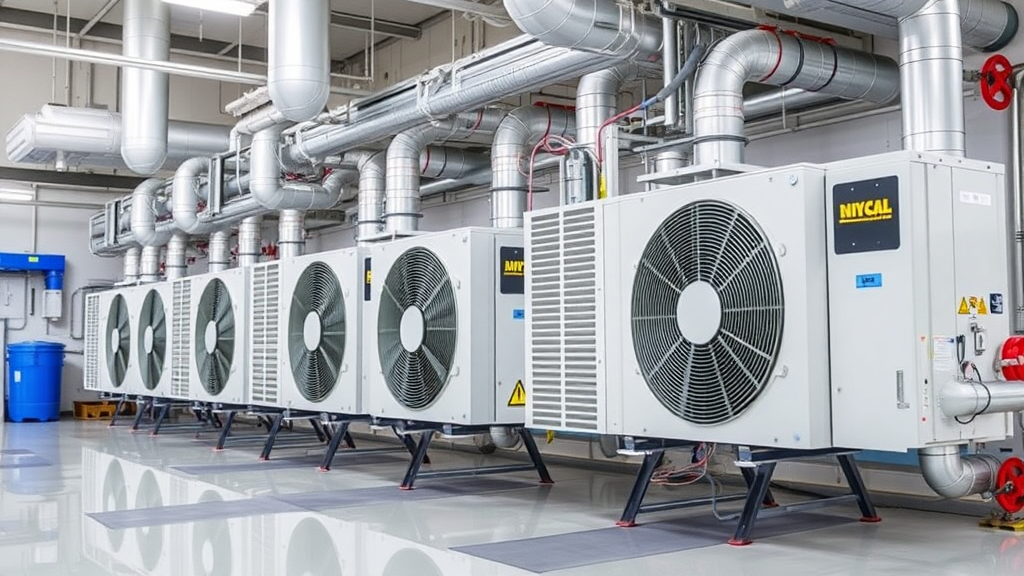
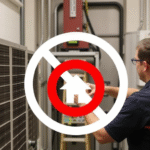
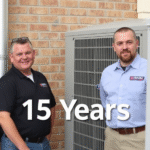
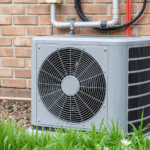
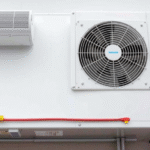
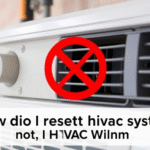
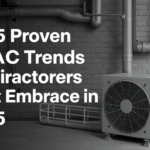
Leave a Reply